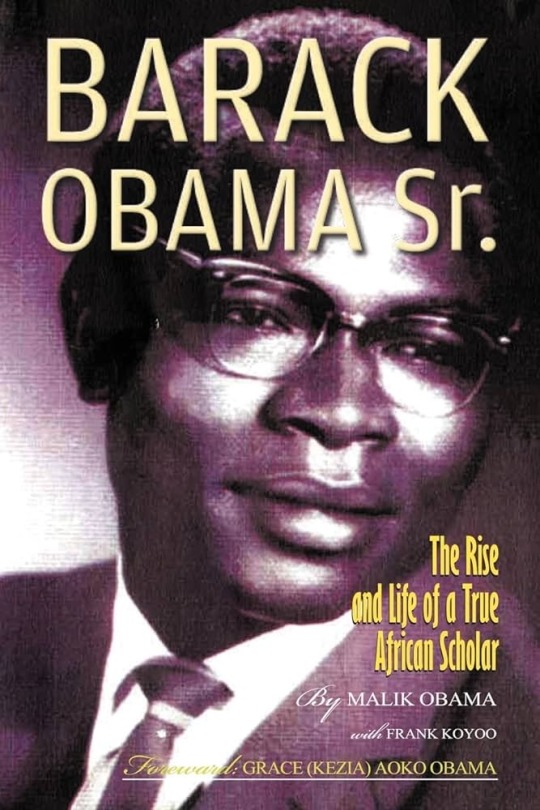#car finance kenya
Explore tagged Tumblr posts
Text

Embark on the journey to secure the best used car financing with Momentum Credit, your trusted financial partner. At Momentum Credit, we guide you through the process, ensuring transparency, flexibility, and financial expertise every step of the way. Discover the keys to success in securing optimal used car financing by assessing your financial situation, exploring our competitive offerings, and understanding the flexibility of our repayment plans. With a focus on your financial well-being, Momentum Credit empowers you to make informed decisions. Secure your dream car with the confidence that comes from partnering with Momentum Credit – where your financial goals become a reality."
0 notes
Text
Proton Cars in Kenya: Affordable Prices and Financing Options

Looking for Proton cars in Kenya? Proton offers a range of affordable and high-quality vehicles, including the popular Proton X70, available at competitive prices. If you’re wondering about the Proton X70 price in Kenya, it’s priced to suit various budgets, ensuring you can get a premium SUV at an affordable rate. Whether you're interested in a Proton X70 Kenya or other models, there are numerous Proton dealers and Mitsubishi dealers offering great deals.
Proton cars come with excellent warranty coverage, ensuring peace of mind for your investment. Many dealers also offer cars for sale with finance facilities, making it easier for you to drive away in your dream car without worrying about full upfront payment. Explore Proton car prices in Kenya and find the best deals on both new and used vehicles, now available with flexible payment options to suit your needs.
#Proton cars Kenya#Proton X70 Kenya#Proton X70 price in Kenya#Proton car price in Kenya#Mitsubishi dealers Kenya#Proton dealers Kenya#Proton car warranty coverage#Proton X70 spec and price#Cars for sale with finance Kenya#Vehicles for sale with finance facility#Affordable cars Kenya#New cars Kenya#Proton Kenya deals#Car financing options Kenya#Buy Proton cars Kenya
0 notes
Text
Affordable Luxury and Proton Vehicles: Discover Great Deals in Nairobi and Mombasa

Unlock incredible deals on cheap cars for sale in Nairobi and Mombasa with Proton Kenya. Whether you're looking to buy cheap luxury cars in Mombasa or find the best for sale cars in Nairobi, Proton Kenya offers a wide selection of vehicles to suit every budget and preference.
If you're specifically interested in Proton vehicles, check out the competitive Proton X70 price and discover why this model is a top choice for value-conscious buyers. Additionally, the Proton Saga is available for sale in Kenya, offering a reliable and stylish option for those seeking economical luxury.
Proton Kenya is your go-to source for exploring these exceptional deals. Whether you’re searching for an affordable luxury car or interested in the latest Proton models, we provide a variety of options to suit your needs. Don’t miss out on these fantastic offers—visit us today to find the best deals on cheap luxury cars and Proton vehicles in Kenya.
#proton x50 price in kenya#cheap luxury saga car#cars for sale with finance facility#book vehicles online in kenya nairobi
1 note
·
View note
Text
Luxury Cars for Sale with Finance Options | Proton Kenya

Explore a wide selection of vehicles available for sale with finance facilities, including affordable luxury cars, in Nairobi. With Proton Kenya, you can conveniently book your preferred vehicle online, whether you're seeking a stylish sedan or a spacious SUV. Experience the perfect blend of comfort, performance, and affordability with our range of vehicles tailored to your needs.
#vehicles for sale with finance facility#buy cars with finance facility#luxurious cars for sale in nyali kenya#new cheap cars in nairobi kenya
0 notes
Text
Proton Cars in Kenya: Explore Proton Saga and X70 Prices

Discover a range of saloon cars in Kenya with competitive prices. Check out the Proton Saga Kenya price and explore the sophistication of the Proton X70. Elevate your driving experience with reliable and stylish Proton vehicles. Find your perfect match and enjoy quality and affordability on the roads of Kenya.
#vehicles for sale with finance facility#buy cars with finance facility#luxurious cars for sale in nyali kenya#new cheap cars in nairobi kenya
0 notes
Text
Easy Car Loans in Kenya

Car loans in Kenya are getting really popular because more people and families want to own their own cars. Since there's a higher demand for cars, banks and other money places have made special loans just for buying cars. These loans let you get your dream car without paying all the money at once. But, it's important to look into all the different loan options. Different banks can have different interest rates and rules for paying back the money. Also, think about your own money situation and pick a loan that fits your budget. Remember to include other costs like insurance, car fixes, and gas when you're figuring out if you can really afford the loan. In the end, car loans in Kenya make it easy for people to get a car and enjoy the freedom and convenience it brings.
#Car Finance in Kenya#Car Financing Companies in Kenya#Car Loans in Kenya#Car Loans in Nairobi#Vehicle Finance Kenya
0 notes
Text

Barack Obama Sr. (June 18, 1936 - November 24, 1982) father of President Barach Hussein Obama, Jr. was born in Kenya to Onyango Obama and Habiba Akumu Nyanjango. He was raised in the Nyang’oma Kogelo village, Siaya District of the Nyanza Province. He converted from Islam to Anglicanism while attending a Christian missionary school and changed his name from Baraka to Barak. His parents separated when he was nine years old, and he was raised by his stepmother.
He married Kezia Aoko (1954) and the couple had two children. In 1959 he was selected for a special academic program and traveled to the US to enroll as the first African foreign student to study at the University of Hawaii at Manoa. He graduated in 1963 with a BA in Economics, he was inducted into the Phi Beta Kappa Honor Society. He married Stanley Ann Dunham (1961-64). The couple had one child.
He graduated from Harvard University, He married Ruth Beatrice Baker (1964-73). The couple had two sons.
He worked for an oil company as an economist in Kenya. He was promoted to the economist for the Kenyan Ministry of Transport, and senior economist in the Kenyan Ministry of Finance. He reunited with Kezia and had two children. He wrote an entry for the East Africa Journal titled “Problems Facing Our Socialism,” which set him at odds with Kenyan President Jomo Kenyatta and much of the nation’s political establishment. When Tom Mboya, Minister of Economic Planning and Development, was assassinated, he came under suspicion. He believed he was now a target of the government. He was fired and blacklisted and found it difficult to find and hold down a job.
He was hit by a car in 1970, an incident that left him in the hospital for almost a year. He traveled back to Hawaii. He visited Barack, Jr. giving him a basketball and taking him to a jazz concert.
He was involved in a second car accident that claimed both of his legs. He met Jael Otinyo, with who he had a son named George. The couple never married but just six months after the child’s birth, he died in a third car accident. #africanhistory365 #africanexcellence #phibetakappa
14 notes
·
View notes
Text
The choices facing Kenya's President William Ruto are now far from easy.
Elected in 2022 pledging to cut corruption, shore up the country's faltering economy and help the poor, the embattled Mr Ruto now faces an unprecedented rebellion against his finance bill - legislation he says he is an essential part of his plan to build the nation.
It might be easier to know which way to turn if the opposition Mr Ruto faced was confined within parliament.
An astute political player, deputy president for almost a decade before being elected to the top spot, Mr Ruto has years of experience wrangling politics to get things done.
Now though, the forces massed against him are something truly beyond his control.
Live: At least five shot dead in Kenya at protests against tax hikes - reports
Kenya's tax proposals that have triggered protests
Why Kenya's president wants people to love the taxman
A mass movement which grew organically out of discontent expressed on social media has grown into a powerful rebellion which has filled the streets of cities and towns across the country.
In the capital, the Nairobi governor's office, city hall and the country's parliament have this afternoon all been set ablaze.
The protesters had started the day threatening a "total shutdown".
And at the end of a day of chaos and panic across the country, often set against the sound of teargas and at times live fire from police, there is no doubt their fury has been heard.
For Mr Ruto, the choice now seems to be about whether to yield to the demonstrators and abandon his budget, or to dig in and push it through, risking further turmoil and bloodshed on the streets.
He has argued the raft of new taxes are essential to control Kenya's debt - a huge sum of more than $80bn (£63bn), which costs the country more than half of its annual tax revenues to service.
Kenya secured a restructuring of its international debt commitments earlier this year – something which immediately pushed a surge in the value of its currency, the shilling.
Increasingly seen as one of Africa’s leading statesmen, recently returned from a state visit to the White House, Mr Ruto understands the importance to his nation’s economy of avoiding a default on its debt payments.
For those in his government the calculation was that controlling the state finances by increasing the tax burden was preferable to cutting public services.
The finance bill, which was due to become law on Monday, originally brought in dozens of new or increased taxes on everything from car ownership and financial transactions to sanitary pads.
Several of the most contentious taxes have already been dropped following consultation with the public.
But the controversy over the budget follows other revenue-raising measures introduced by Mr Ruto, including increased taxes for healthcare and low-cost housing.
And for those on the street, there's a third solution available to the government beyond cutting services or raising taxes.
Many blame the country’s financial woes on corruption, with taxpayers wary of paying more amidst a lack of trust over the transparency of the state.
For Mr Ruto it is perhaps the shadows of this past that make his current position so difficult.
He rose from the deputy presidency to the presidency in the 2022 elections, and with a focus on green energy and tech he has certainly got new ideas about where he wants to take Kenya.
But for many on the streets, Mr Ruto’s record as a senior figure in government over a period marred by corruption means it’s hard to trust him with their taxes.
Tuesday’s events in Nairobi leave Mr Ruto seemingly pinned now into a tight corner.
Facing condemnation for what many Kenyans see as a heavy-handed response to protests in the street, he must choose now whether to hold firm to his budget or to find a different route to securing financial security for Kenya.
In the meantime, those who came out to have their voices heard in Nairobi and across the country show no sign of giving up.
When Mr Ruto addressed the nation in his inauguration speech, he spoke directly to the country’s politically-active youth.
“My political journey,” he told them, “Similarly began as a young campaign volunteer, fresh out of university.
“Your experience and lessons learnt should form the basis for your leadership journey.”
Now it is a confrontation with a youth-led movement that poses what many consider to the be biggest challenge to authority in Kenya since the country’s independence in 1963.
The next days for Mr Ruto will be crucial, as he faces tough choices for his government and the country.
2 notes
·
View notes
Text
Un collectif d’organisations et d’associations dont les Amis de la Terre, Greenpeace, Extinction Rébellion affichent leur soutien aux manifestants et annoncent les rejoindre.
Nous nous adressons à tous les agriculteurs et agricultrices ayant manifesté leur colère ces derniers jours, mais aussi à toutes celles et ceux qui hésiteraient encore à les rejoindre. Nous, organisations écologistes, paysannes et militantes pour un autre modèle agricole depuis des décennies partageons cette colère, et refusons le discours dominant qui voudrait faire de nous vos ennemis.
Nous sommes en colère parce que nous savons que la destruction des conditions de vie des paysan.ne.s comme la destruction des écosystèmes profitent aux mêmes personnes, et que ce ne sont ni vous ni nous.
Depuis les tout débuts des mouvements écologistes, nous nous sommes toujours mobilisés avec détermination sur la question du modèle agricole et des conditions de travail et de vie des agriculteurs. Parce que nous savons l’importance considérable de l’agriculture sur l’environnement : ainsi la qualité de la terre, de l’air, de l’eau, de ce que nous mangeons, et bien sûr le climat, dépendent de ce que nous cultivons et élevons et de la manière dont nous le faisons.
Nous avons lutté contre les traités de libre-échange, pour la souveraineté alimentaire et pour que chaque pays – et chaque paysan.ne – puisse vivre de son agriculture et la faire vivre plutôt que de la soumettre à la concurrence internationale. Nous avons manifesté main dans la main avec les agriculteurs contre la grande braderie du monde paysan à la finance, contre le Tafta (avec les Etats-Unis), le Ceta (avec le Canada), le Mercosur (avec l’Amérique latine), maintenant les traités de libre-échange avec la Nouvelle-Zélande, le Chili et le Kenya soutenus par Emmanuel Macron.
Le principe d’une sécurité sociale de l’alimentation
Nous avons en tant que consommateurs et militant.e.s soutenu l’agriculture paysanne, créé et promu les Amaps, les circuits courts, l’agriculture bio, nous avons mis la main à la pâte jusqu’à mettre de l’épargne au service de nouvelles installations. Nous appelons depuis longtemps à ce qu’il y ait au moins un million de paysan.ne.s en France, et nous savons l’urgence qu’il y a à trouver des repreneurs, car dans moins de dix ans maintenant la moitié des agriculteurs du pays partira à la retraite. Et même si c’est loin d’être assez, ce sont déjà des milliers de militant.e.s écologistes qui ont entrepris des reconversions en agriculture pour s’y mettre concrètement.
C’est encore pour cela que nous sommes nombreuses et nombreux à défendre désormais le principe d’une sécurité sociale de l’alimentation, un système de solidarité entre consommateurs et producteurs qui permette à ces derniers de vivre décemment de leur travail et de reprendre la main sur notre alimentation.
Dans le domaine de l’agriculture comme dans d’autres, nous discernons bien aussi toute l’ambiguïté des normes. Certaines peuvent bel et bien protéger la santé des travailleurs, la fertilité des terres, les ressources en eau… Mais sous des prétextes vertueux, elles sont parfois aussi conçues pour impliquer des contraintes techniques, pratiques et une aseptisation du métier telles qu’elles vont dans le sens de la disparition des petites fermes au profit de ceux qui peuvent s’industrialiser et s’endetter plus encore. Il n’y a pas lieu de s’attaquer sans discrimination aux normes environnementales mais de les financer de manière à maintenir les revenus et d’en rendre l’application compatible avec la pratique paysanne.
Alors nous sommes nombreux à avoir soutenu et proposé sans succès une autre PAC, qui aide réellement aux reconversions et pour ne pas vous abandonner face à des normes environnementales imposées sans aucune contrepartie derrière pour les appliquer concrètement et de manière juste.
Même et surtout quand nous nous battons contre des projets agricoles, contre des mégabassines, ou des élevages industriels aux proportions absurdes : nous le faisons systématiquement avec des agriculteurs, et pour le monde paysan. Parce qu’il est injuste et hypocrite que quelques agriculteurs s’accaparent l’eau au détriment de ceux qui cherchent à produire autrement. Parce que les fermes-usines contre lesquelles nous nous battons détruisent de l’emploi paysan et mettent une pression déloyale sur les petits éleveurs qui sont contraints de s’aligner ou de mettre la clé sous la porte. Et tout ça au bénéfice de grands groupes qui les poussent à des élevages toujours plus grands pour leur racheter leurs produits à des prix dérisoires – c’est par exemple la stratégie du groupe Duc révélée par une enquête.
L’échec et le drame d’un modèle productiviste
Stopper ces projets, c’est défendre un modèle agricole qui protège le vivant mais surtout qui permet au reste du monde paysan de vivre dignement d’un travail de qualité.
Car, qui est à l’origine de la chute du nombre de paysan.ne.s à moins de 500 000 en France ? A l’origine des suicides d’agriculteurs chaque jour, des montagnes de dettes ? A l’origine des obligations de rendements toujours plus importantes, de la concentration toujours plus forte des terres dans les mains de quelques-uns, des prix toujours plus bas de ce que vous produisez ? Les prix agricoles ont baissé de 10 % en moyenne rien que l’année écoulée, tandis que l’inflation bondissait et les bénéfices des grands groupes agro-industriels et de la grande distribution également.
Cet échec et ce drame, ce sont ceux d’un modèle productiviste, poussé par la grande distribution et des gouvernements successifs depuis des décennies, contre lesquels nous alertons depuis tout ce temps.
Le modèle agricole que nous défendons se bat précisément contre les causes de ces drames. Mais aussi contre l’autoritarisme qui s’offre comme une solution, alors qu’en excluant plus qu’en rassemblant, jamais l’extrême droite n’a été du côté des travailleurs.
Depuis toujours, nous sommes les alliés des paysans. Et contrairement à ce que racontent la propagande du gouvernement ou les discours autoritaires qui attisent la haine entre nous pour mieux s’engraisser sur nos vies : nous continuerons à être vos alliés, parce que c’est une question de survie.
Alors c’est en tant qu’alliés que nous appelons à vous rejoindre dans vos actions les jours qui viennent pour porter ce message, et pour défendre le monde paysan.
Nous serons là avec différents points fixes pour discuter avec tous les agriculteurs qui le veulent, et ensemble rappeler que les véritables responsables de la crise que vit la profession ne sont ni les consommateurs ni les écolos – mais bien la lâcheté des gouvernements successifs, la grande distribution et l’agro-business qui s’engraissent pendant que tant d’entre vous se tuent à la tâche.
Nous refusons de laisser des industriels possédant des milliers d’hectares, le gouvernement ou encore les éditorialistes de CNews bien au chaud dans leurs bureaux parisiens nous traiter comme la cause de la crise que subit le monde paysan depuis si longtemps.
Nous préférons construire ensemble un modèle qui profite aux agriculteurs, aux consommateurs et à la vie, comme il aurait toujours dû l’être. Et nous serons ensemble dans la rue pour en discuter et manifester, car oui, il est bien possible d’être militant à la fois pour l’environnement et pour l’agriculture de demain.
Premiers signataires : Alix Brun pour les Youth for Climate, Jean-François Deleume, porte-parole Alerte des médecins sur les pesticides, Cyril Dion, réalisateur et écrivain, Simon Duteil et Murielle Guilbert, co-porte-paroles de l’Union syndicale Solidaires, Khaled Gaiji, président des Amis de la Terre, Antoine Gatet, président de France Nature Environnement, Hanzo pour Extinction Rebellion, Axel Lopez pour la coalition Résistance aux fermes-usines, Gilbert Mitterrand, président de la Fondation Danielle-Mitterrand, Lotta Nouki, porte-parole des Soulèvements de la Terre, Sandy Olivar Calvo, chargée de campagne Agriculture et Alimentation chez Greenpeace France, Alessandro Pignocchi, auteur de bandes dessinées, Priscille de Poncins, secrétaire de Chrétiens unis pour la Terre, Jérémie Suissa, délégué général de Notre affaire à tous, Emma Tosini, porte-parole de Alternatiba, Victor Vauquois, co-coordinateur de Terres de luttes…
3 notes
·
View notes
Text
Kenya's Haiti mission in limbo as urgency grows

A convoy of cars carrying members of a Kenyan delegation leave the premises of Haitian National Police (PNH) after meeting with the Chief of the Haitian National Police Frantz Elbe, in Port-au-Prince, Haiti, August 21, 2023
NAIROBI (Reuters) - Kenya has said its police officers will soon be in Haiti to confront rampaging gangs controlling the capital, but worsening insecurity and uncertainty about financing are casting doubt on the mission's prospects.
Kenya's government, which first pledged to lead an international security mission last July, says the coast is now clear to deploy after it signed an agreement with Haiti's government on March 1 meant to address concerns raised by a domestic judge who deemed the existing plan unlawful.
The United States and other powers are pushing for a swift deployment of Kenyan officers, seen as a prerequisite to allowing a half-dozen other African and Caribbean countries to also send security forces.
Prime Minister Ariel Henry has been unable to return to Haiti because of escalating violence since he signed the deal in Kenya. He announced overnight he would resign once a transition council and temporary replacement have been appointed.
Kenya's army has previously been sent to countries including Somalia, but its police officers have never been deployed in such large numbers and, for Nairobi, thorny issues remain to be worked out.
"The deteriorating security situation is likely to force a rethink in Nairobi," said Murithi Mutiga, the program director for Africa at the International Crisis Group think-tank.
"The state seems to be crumbling from within and the security situation is much worse than when Kenya offered to lead the mission."
Kenya's presidency and government did not respond to requests for comment.
One major challenge, according to diplomats with knowledge of the matter, is financing. The United States is providing the bulk of the funds for the mission, which was authorised by the U.N. Security Council in October.
The United States has pledged $300 million. However, a U.N. spokesperson said that as of Monday, less than $11 million had been deposited into the U.N.'s dedicated trust fund.
A senior U.S. State Department official said President Joe Biden's administration was working with Congress to get the money transferred.
Kenya has asked to be paid the costs of the deployment upfront, but U.N. rules require that funds it administers be used only to reimburse costs already incurred, according to a diplomat based in Nairobi and U.N. officials.
Kenya would therefore need to find a country willing to pay it directly, said the diplomat and U.N. officials who requested anonymity because of the sensitivity of the discussions.
A senior U.S. official said $100 million in Defense Department funding to the mission announced on Monday would be used for logistics and equipment, and would not pass through the U.N. trust fund.
It was not clear whether that money could cover some or all of the Kenyan government's requests. Kenya has pledged 1,000 officers to a mission that experts expect to have up to 5,000 personnel.
PRE-DEPLOYMENT STAGE
Addressing reporters on Monday, Interior Minister Kithure Kindiki said Kenya was in the pre-deployment stage.
"There was a small court matter and that has been resolved," he said.
A High Court judge ruled in January that the government's plan was unlawful because there was no "reciprocal agreement" with the host country.
Although the government believes the March 1 agreement addressed the judge's misgivings, the opposition politician who spearheaded the lawsuit has vowed to launch a new challenge. He argues that the unelected Henry did not have the legal authority to enter into such an arrangement.
Meanwhile, the surging violence over the past week in Port-au-Prince, where gangs besieged the international airport and released thousands of prisoners, has deepened concerns in Kenya about the wisdom of the mission.
Opposition politicians, already critical of the mission as too dangerous and not in Kenya's national interests, have stepped up their criticism.
Opiyo Wandayi, the minority leader in the National Assembly, warned last week of immense losses. Makau Mutua, a prominent law professor, said Kenyan officers would be "sitting ducks".
Enock Alumasi Makanga, a former police officer and the national chairman of the Protective and Safety Association of Kenya, told Reuters that Kenyan police lacked the training and equipment to carry out such a mission.
"The level of criminality in Haiti is beyond what our guys can do," he told Reuters.
Kenyan officials have said that the highly-trained paramilitary officers were well prepared for the challenges.
President Ruto has said the mission is a "bigger calling to humanity" motivated by solidarity with a brother nation. Haiti requested an international force in October 2022, but foreign governments were reluctant to participate.
3 notes
·
View notes
Text
Four injured as small plane crashes into cars on Texas highway
AM Live AM Live is NTV’s morning current affairs show that sets the agenda for the day with insightful panels every weekday. north_east Business Redefined Business Redefined is Kenya’s premier thought leadership platform for unpacking matters regarding economic and finance policy as well demystifying complex developments in the region’s capital markets. north_east Comedies A collection of…
0 notes
Text
Explore Proton X70 in Kenya: Price, Warranty, and Coverage Details

If you’re considering purchasing a Proton X70 in Kenya, it’s important to understand not only the vehicle’s features but also the car warranty coverage that comes with it. The Proton X70 is a highly sought-after SUV known for its advanced technology, stylish design, and excellent performance. Whether you're interested in the Proton X70 Kenya model or simply curious about the Proton X70 price in Kenya, Simba Corp offers competitive pricing options that cater to various budget needs.
The Proton X70 comes with comprehensive warranty coverage, providing peace of mind for buyers. Understanding what the warranty includes is crucial—whether it covers parts, labor, or specific components such as the engine, transmission, and electrical systems. This coverage ensures that your investment is protected against unexpected repairs, adding value to your purchase.
If you're looking for a reliable, stylish, and affordable SUV, the Proton X70 in Kenya is a great choice. At Simba Corp, we offer full details on pricing, financing options, and warranty coverage to help you make an informed decision. Visit us to learn more about the Proton X70 and how you can own this exceptional vehicle in Kenya today.
#- Proton X70#- Proton X70 Kenya#- Proton X70 Price in Kenya#- Car Warranty Coverage#- Proton X70 Features#- Proton X70 Financing Kenya#- SUV for Sale in Kenya#- Vehicle Warranty Kenya#- Proton Dealership Kenya#- Buy Proton X70 Kenya#- Car Warranty Kenya#- SUV Warranty Coverage#- Proton X70 Offer Kenya
0 notes
Text
Affordable Car Financing in Kenya and Top Luxury Experiences with Simba Corp
Looking for affordable car financing options in Kenya? Simba Corp offers flexible financing solutions, making it easier for you to own your dream car. Whether you're searching for a cars financing company in Kenya or cheap car financing in Mombasa, Simba Corp provides tailored plans to suit your budget.
Beyond vehicle financing, Simba Corp extends its expertise to luxury lifestyle experiences. Discover the finest boutique safari camp in Kenya, where comfort meets nature, and indulge in fancy restaurants in Nairobi for an unforgettable dining experience. Simba Corp truly brings together the best of automotive and luxury living in Kenya.
#cars financing company in kenya#cheap car financing in mombasa#boutique safari camp in kenya#fancy restaurants in nairobi
0 notes
Text
Safari Tour Operators for Arusha
Find the best safari tour operators for Arusha, Tanzania at Perfect Travel Agent. We specialize in corporate travel services, Car Hire, finance service and arrange holiday packages to various destinations between Kenya and Tanzania. Unforgettable safaris and amazing adventures await with Perfect Travel Agent in Arusha, Tanzania.

0 notes
Text
The Alarming Exploitation by Certain African Pastors: A Call for Reform
I am deeply appalled by the increasing number of self-proclaimed “men of God” across Africa, particularly in Nigeria, who exploit their congregations for personal gain. These individuals masquerade as spiritual leaders while engaging in financial exploitation and, in some cases, sexual misconduct.
Financial Exploitation:
Many pastors manipulate their congregations into making substantial donations, promising divine blessings or prosperity in return. These funds often finance their opulent lifestyles, including luxury cars, private jets, and lavish homes. For instance, T.B. Joshua, founder of the Synagogue Church of All Nations (SCOAN), was reported to have secretly purchased a $60 million Gulfstream G550 private jet. 
Similarly, Pastor Tobi Adegboyega, founder of SPAC Nation in the UK, faced allegations of financial mismanagement and exploitation. A BBC Panorama investigation accused Adegboyega and other church leaders of pressuring members to donate large sums, with some individuals claiming they were asked for amounts up to £20,000. 
Sexual Misconduct:
Numerous pastors have been implicated in sexual scandals, abusing their positions of authority to exploit vulnerable congregants. Notable cases include:
• Biodun Fatoyinbo: The leader of the Commonwealth of Zion Assembly (COZA) was accused by multiple women of sexual assault, including allegations of rape dating back to 2013 and 2018. 
• Tim Omotoso: A Nigerian televangelist and senior pastor of Jesus Dominion International, based in South Africa, has been in jail awaiting trial since April 2017 for charges including rape, human trafficking, and racketeering. He is alleged to have groomed and abused victims as young as 14. 
• T.B. Joshua: Posthumous investigations revealed that the founder of SCOAN had allegedly abused followers over more than 15 years, including multiple rapes and forced abortions. 
Governmental Response:
Recognizing the severity of these issues, governments in countries like Kenya and South Africa are advocating for church regulation to combat abuses and ensure accountability within religious institutions.
Preventative Measures:
To address and prevent such exploitation, the following measures are essential:
1. Establish Strong Internal Controls: Implement checks and balances, such as requiring multiple signatures on financial transactions and segregating duties among staff, to reduce opportunities for fraud.
2. Conduct Regular Audits: Perform internal and independent audits to ensure transparency and accountability in financial matters.
3. Create Written Financial Policies: Develop clear policies outlining financial practices, including the handling of donations and expenditures.
4. Educate Congregations: Inform church members about financial practices and encourage them to inquire about fund usage.
5. Report Misconduct: Encourage the reporting of any suspected financial or sexual misconduct to authorities to ensure accountability.
It is imperative to address these widespread abuses and demand justice for those deceived and exploited in the name of faith.
#ReligiousAccountability #EndExploitation #FraudulentPastors #ChurchRegulation #TransparencyNow

0 notes
Text
Get Your Dream Car with Easy Car Loans in Kenya

Car loans in Kenya have become increasingly popular as more individuals and families aspire to own their own vehicles. With the rising demand for cars, financial institutions have developed various loan products tailored specifically for purchasing cars. These loans provide borrowers with the opportunity to acquire their dream vehicles without having to bear the burden of paying the full cost upfront. However, it is important for borrowers to thoroughly research and compare the different loan options available, as interest rates and repayment terms can vary significantly between lenders. Additionally, borrowers should consider their financial capabilities and choose a loan that suits their budget and repayment ability. It is also advisable to factor in additional expenses such as insurance, maintenance, and fuel costs when determining the overall affordability of the loan. Overall, car loans in Kenya offer a convenient and accessible way for individuals to own a car and enjoy the benefits of mobility and convenience.
#Car Finance in Kenya#Car Financing Companies in Kenya#Car Loans in Kenya#Car Loans in Nairobi#Vehicle Finance Kenya
0 notes